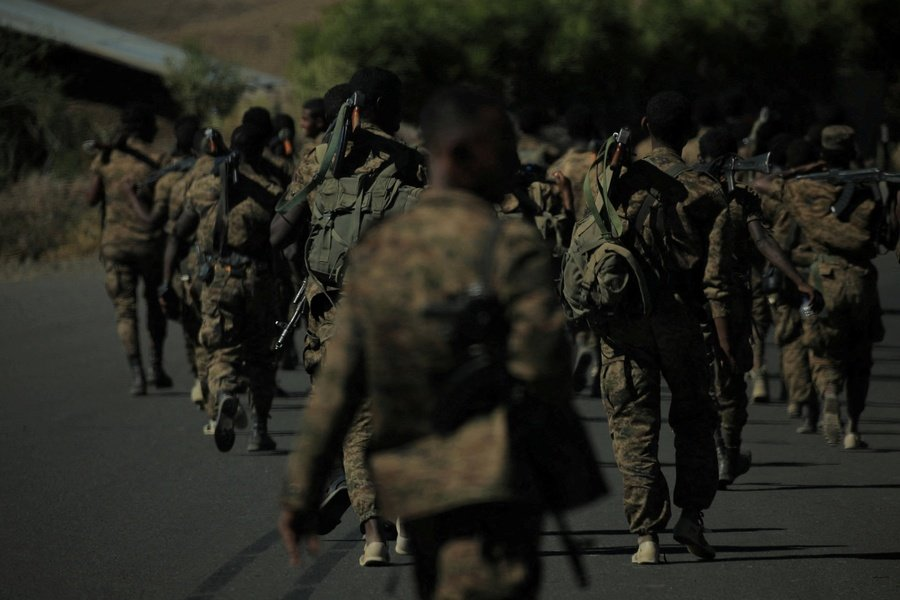
Last week, good news emerged from Ethiopia. The federal government announced a truce in its sixteen-month conflict with Tigrayan forces, expressing hope that its action would improve the humanitarian situation in the region and pave the way for lasting peace. Tigrayan forces responded in kind, pledging to make the truce a success.
Trust is in extremely short supply, and questions abound about whether the positive statements will translate into real changes on the ground—particularly, whether trucks filled with humanitarian supplies will be able to reach Tigray for the first time since December. Significant troop movements in recent days are only fueling the atmosphere of uncertainty. The Ethiopian government coupled its announcement with a call for Tigrayan forces to withdraw from territories adjacent to Tigray proper, but the boundaries of Tigray have been a subject of dispute throughout the conflict. Over the past months, federal forces have mostly blamed Tigrayans themselves for humanitarian organizations’ inability to access Tigray by road, while sometimes faulting local armed groups operating outside of federal control; it remains to be seen whether the government is prepared to take action to ensure humanitarian access. In other words, there are plenty of potential excuses and deflections that could be employed should the government’s will to end the siege of Tigray be less than resolute. The Tigrayans built a hedge into their statement as well, noting that they will observe the ceasefire so long as aid reaches the region in a reasonable amount of time.
Moreover, the overall outlook for lasting peace and justice in Ethiopia remains grim. Over the past year and a half, internal divisions have been exacerbated by the normalization of political violence, unleashing of multiple armed groups, and dehumanizing rhetoric employed by Ethiopian leaders. Horrific atrocities have been committed by all parties to the conflict. Spurious claims of foreign plots have poisoned diplomatic relationships, and Ethiopia’s economic resilience has been badly battered. The political landscape in the country is hardly fertile ground for much sustainable, positive momentum.
Of course, the immediate humanitarian catastrophe—and the prospect that global food shortages could make it even worse—is far too devastating for Ethiopia’s partners to do anything other than try their best to capitalize on the apparent opportunity presented by last week’s announcement. The same holds true of broader engagement attempts: Ethiopia is too important, and its fate too central to the Horn of Africa, to be neglected by frustrated or distracted external powers. But those same external parties should take care not to repeat mistakes of past. There was a time when the United States chose to look away from internal repression and abuse in Ethiopia because it was far easier to focus on regional peace and security issues where U.S. interests aligned with those of Addis Ababa. But a reliable and mutually beneficial partnership cannot be built on a faulty foundation. The toxicity pervading Ethiopia’s political culture today is a clear and present threat to the country’s stability. Pretending not to see it only makes a bad situation worse.
